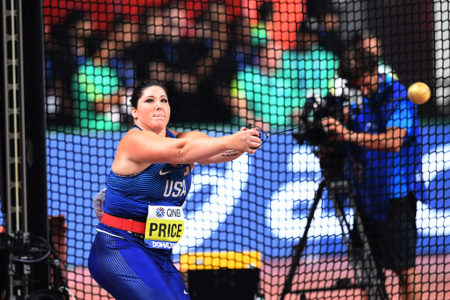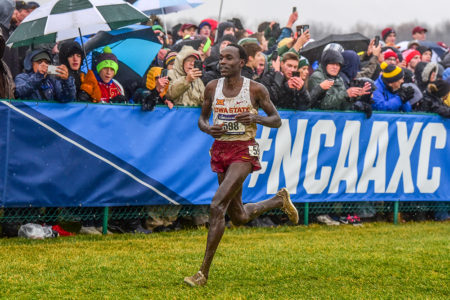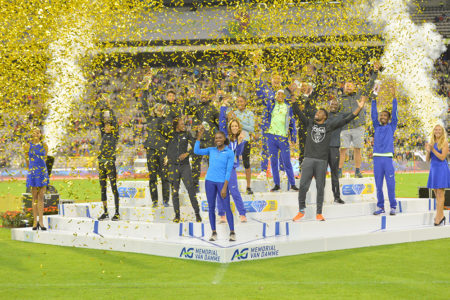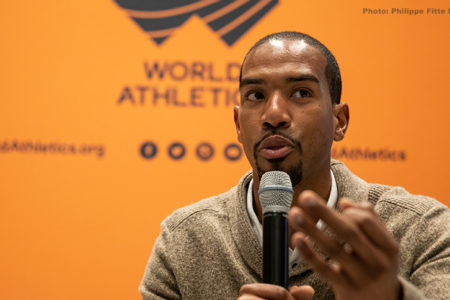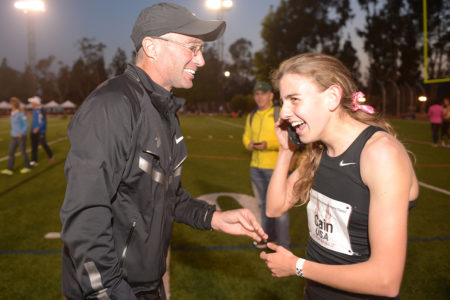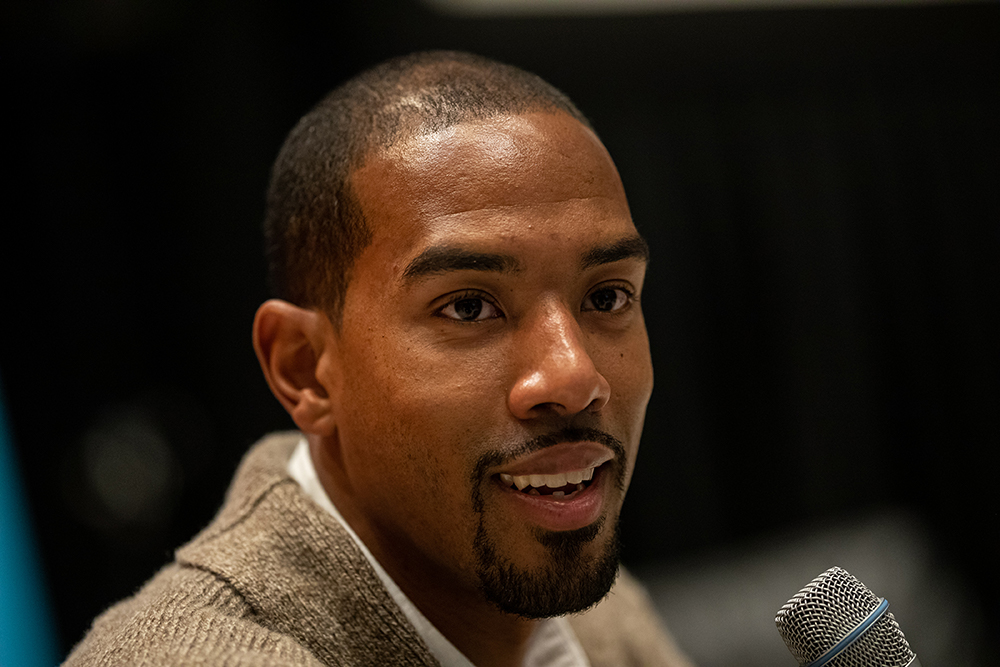
WHEN WORLD ATHLETICS revealed the details of event-cutting streamlining for the Diamond League next season, triple jumper Christian Taylor, a charismatic top-drawer star, reacted quickly and publicly to air his sense the cherished sport and not just his event had been gored. Through social media under the hashtag #WeAreTheSport, Taylor announced his intention to start a union of sorts:
Hello everyone,
I am incredibly disappointed that the IAAF/World Athletics and the Diamond League have decided to remove more events from the programme for 2020. Our sport is about unity and diversity and separating the events can only damage this sport we all love.
For some time now I have been in discussion with other elite track & field athletes and we have been talking about how we can have a greater say in the future of our sport.
Today I am announcing the formation of The Athletics Association—an association for all professional track & field Athletes around the world.
We will fight for athletes’ rights and ultimately demand a seat at the table and a say in how our sport is run and how the sport can grow and evolve without ripping out its very core. At the moment we, the athletes, have no power. Yes there is an Athletes’ Commission but we need something independent of the IAAF/World Athletics.
Inviting current pros to join in the latest attempt to organize, Taylor declared near the end of his manifesto, “I refuse to give up on this sport and will do all I can to get real answers from the people currently running it.”
A 2-time Olympic gold medalist and 4-time world champion, Taylor is also one of just two athletes to have won an overall DL crown in his discipline seven times; vaulter Renaud Lavillenie is the other. The Frenchman will be able to vie for title No. 8 in ’20. Taylor will not.
After releasing an initial list of 10 additional “founding members” of The Athletics Association—Lavillenie, Tianna Bartoletta, Nelson Évora, Caterine Ibargüen, Omar McLeod, Sandra Perković, Brittney Reese, Dina Asher-Smith, Katerína Stefanídi, Tom Walsh—Taylor was invited by WA President Seb Coe and CEO Jon Ridgeon to talk during the federation’s annual Gala. (Continued below)
“The initial talks we had with @sebcoe and Jon Ridgeon in Monaco were positive,” Taylor tweeted afterwards. “There is a lot to be done and many issues to tackle. With the understanding that we won’t agree on everything, but fundamentally we think they want to listen and work with us.”
The 29-year-old Florida alum elaborates, “We’re still in the works right now of getting it registered properly. And of course there is the legal side of that also, so it’s not that you can just go and say, ‘We’re starting an association,’ but there are protocols and making sure we just do our due diligence and making sure that this is set up properly. As many efforts previously have ended up dying out, we’re trying to make sure that this is something that lasts.”
Cooperation, not confrontation, he says, was the nascent group’s modus operandi in the conversations with WA: “We discussed our efforts, how hopefully we will be able to work together. This is not about a boycott or a strike or us versus them, but how are we going to work together to go in a different direction than what this presumes we’re heading into right now.”
Long term, though, Taylor intends not to countenance “the idea of streamlining or cutting disciplines from the Diamond League or from the sport as a whole. It’s just for me a poor effort of this idea of growth—when you’re making the program shorter you’re actually essentially taking people out of the platform of the Diamond League. [Coe and Ridgeon] did understand our concerns, frustrations, and unfortunately things are locked in for the 2020 season but now efforts are all for 2021. Not just in getting the sport back to where it was, but how can we be more innovative, how can we be more creative. How can we start actually having a voice and influence as athletes in the direction that the sport is going in.”
As Taylor sees it, the DL’s research, polling the league indicates led to its list of events fit for the chopping block, was a flawed and unimaginative tool. Says Taylor, “I have always been a believer that no event should be greater than the other, that every event contributes to the sport of athletics—or track & field depending on where you’re from. So this idea that sprinting is different from distance running, is different from the field events—you know, we all are parts of the sport that we love. And I don’t believe a poll, a survey, any kind of research saying what events we should get rid of is the correct way of going about it. I think what we should focus on is where we are, what are our weak points?
“Let’s be very specific. If they’re saying we’re having an issue where we have a lot of dead time in 120 minutes of programming that we have, or it’s very difficult for the fans to follow if we’re jumping from a sprint and then back to a field event, I believe we need to focus on the coverage, how our sport is being presented, not taking away events. Any time I’ve taken someone [not steeped in the field events] with me, any time someone has watched us do a field event, I hear, ‘I had no idea’ essentially how exciting this was because on TV you don’t get this feeling. On TV the broadcasters are essentially working just with what they have. But if they’re not aware that someone has just jumped a World Record, someone has just thrown a meeting record or a world lead, it’s very difficult when you’re given 30 seconds to jump over to another event after watching the sprint event. So I think we need to work more on the coverage, the presentation, as opposed to taking away athletes.”
WA’s announcement of its new Continental Tour series roused mixed emotions for Taylor along with questions. “Initially when they announced triple jump, steeplechase, discus and the 200 and 5K were dropped I thought, ‘This is very unfortunate because there’s no Plan B,’” he says. “They just said further information was to come.
“Now they’ve just announced the Continental Tour and [pause] I’ve tried to be very positive about this because I am grateful that there is something in place. I am grateful that the previous World Challenge meetings have stepped up and said, ‘We will help the tour, we will help support the events that have been dropped.’ But financially, if you just look at the numbers, it is actually quite a big hit. When it comes to TV coverage, I don’t know what will be in place, but previously the percentage of coverage we were getting in the Diamond League was extremely small. And to now think, ‘When you go into a tier below, how much coverage will you really get?’
“This will also affect the sponsorships because they’re going to think, ‘Why are we going to support the athletes we may not even see?’ In the Diamond League structure if you won your event you had a bye towards the following World Championships. How is that going to take place for this new league? I’ve heard that there will be a bye carryover but when I asked about the points structure because there is no final, there was no clear answer with this. Is it whoever competes the most, who has the most points at the end? So this was not very clear. I think there are a lot of details that still need to be finalized.
“It’s actually scary to me that a decision can be made to remove [events], that a decision can be made to present a Plan B, but even the Plan B is not in place. So I think that when you are thinking of athletes’ livelihoods, I don’t believe it’s fair that they can just be pushed and thrown around as if it’s nothing. Because this year is one of the most important years in an athlete’s life. It’s preparation for the Tokyo Olympics.
“And if their sights were set on ‘I will be able to compete in the Diamond League meets, I will be able to compete against the top 8 and top 12 athletes in the world,’ the rug has been really pulled out from under us because all the preparation now has to change. It’s, Well, how am I going to be able to find the meet that is going to be strong enough to prepare me, to put me in that state of mind to get ready for the Tokyo Olympics? So I don’t think this was completely thought out.”
Organizing athletes across the wide event and geographic diversity of the world class sport has defied the best efforts of others before Taylor and his cohort, but he believes an independent athlete group with a voice is as needed as it has ever been. “Of course it is the very earliest stage and we don’t have an advisory board yet,” Taylor says. “We’re still outreaching to the other sports that have started their own unions and associations. So we’re definitely finding out how we need to structure this.”
Taylor sees WA’s elevation of Athletes’ Commission chair Lavillenie (and Kiwi putter Valerie Adams) to voting power on its Council as a hopeful development for cooperative dialog. “So this is very nice that Renaud can also play almost both sides,” Taylor says. “He does have a foot in the door but can also truly now voice the opinions and feelings of athletes. Before it was, ‘Well, we spoke to athletes,’ but that [the WA Athletes Commission] is a panel of 18 people, you know? Now it’s well, we’ve got a pretty solid database of athletes that of course we can poll, that we can speak to about different input. But also now, really, when they say they speak to athletes they genuinely will have a feel of athletes.”
Could be true if the Athletics Association defies historical precedent and successfully negotiates its launch from the runway into the “pit” the powers in the sport call home.
